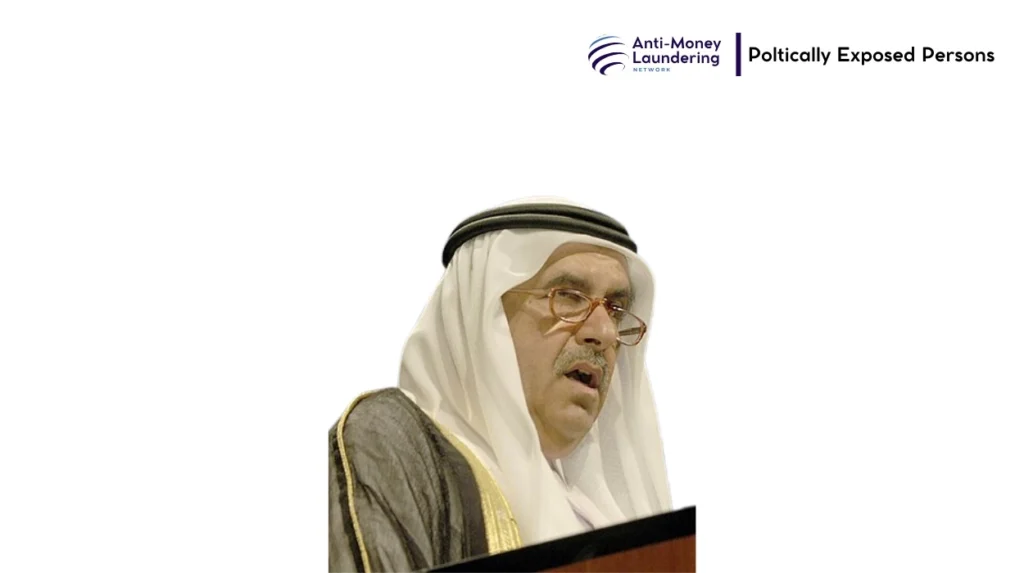Sheikh Hamdan bin Rashid Al Maktoum was a prominent figure in the United Arab Emirates, known for his significant contributions to the country’s political and economic landscape. As a member of the ruling Al Maktoum family in Dubai, he held influential positions that shaped the emirate’s development. Serving as Minister of Finance and Industry from 1971 until his passing in 2021, and also as Deputy Ruler of Dubai, his role was central to the advancement of Dubai’s industrial base and the broader UAE economy. His leadership, philanthropic efforts, and family legacy make him a critical figure in understanding the modern history of the UAE.
Early Life and Background
Born on December 25, 1945, Sheikh Hamdan bin Rashid Al Maktoum’s early life was rooted in Dubai, within one of the most powerful ruling families in the Gulf region. His place of birth in Dubai aligned him with the emirate’s transformation from a modest trading hub into a global financial and commercial center. His education began locally at Al Madrasah Al-Ahlia, where he received foundational training in mathematics, Arabic, Islamic studies, and English. Later, he broadened his learning at the Bell School of Languages in Cambridge between 1967 and 1968. The formative years of his life coincided with the early developmental stages of the UAE, granting him a firsthand understanding of the challenges and opportunities associated with nation-building during a period of rapid modernization.
Personal Life
Despite the public roles he fulfilled, Sheikh Hamdan bin Rashid Al Maktoum maintained a relatively private personal life in accordance with Emirati traditions. He was known to have a wife, and there are reports of a second wife, reflecting the polygamous norms sometimes present in royal circles. His family extended into several children, who form part of the wider Al Maktoum dynasty, which continues to hold prominent political and social positions within Dubai and the wider United Arab Emirates. The family’s influence extends beyond politics into business and philanthropy, representing a dynastic presence that wields considerable power across several sectors.
Career and Achievements
Sheikh Hamdan’s career is marked by his appointment as Deputy Prime Minister and Minister of Finance and Industry on December 9, 1971, coinciding with the establishment of the United Arab Emirates federal government. Beyond his ministerial role, he was also appointed Deputy Ruler of Dubai, tasks that placed him at the heart of policymaking and governance in one of the world’s fastest-growing economies. His stewardship was pivotal in diversifying the UAE economy away from oil dependency towards developing industrial enterprises, including companies focusing on aluminum, gas, and manufacturing in Dubai. An advocate for education and medical excellence, he founded the Sheikh Hamdan Bin Rashid Al Maktoum Award for Medical Excellence, which promotes advancement in medical research and healthcare within the emirate and beyond.
Lifestyle, Wealth, and Assets
As a senior member of the Al Maktoum family, Sheikh Hamdan enjoyed a lifestyle reflecting the wealth and status associated with Gulf royalty. His estimated net worth was substantial, primarily accumulated through familial wealth, government service, and diversified investments. He owned palatial residences and luxury assets typical of ruling family members, including grand estates in Dubai and involvement in thoroughbred horse racing at an international level. His passion for horses translated into investments in racing stables across Britain, Ireland, and the United States. The luxurious lifestyle was intertwined with public service, making him a well-rounded figure blending tradition and modernity.
Influence, Legacy, and Global Recognition
Sheikh Hamdan’s influence extends beyond his ministerial achievements. He was a key figure in positioning Dubai as a global city, contributing to policies fostering economic openness, infrastructure development, and international recognition. His philanthropic works, especially in education and health, solidified his legacy as a benefactor who aimed to improve social outcomes in the UAE. His death in 2021 was widely mourned, marking the end of a pivotal chapter in Dubai’s governance. His legacy is reflected in the continued success of Dubai as a commercial nexus and in the ongoing influence of his family within the UAE’s political architecture.
Financial Transparency and Global Accountability
While widely respected, Sheikh Hamdan’s career must also be viewed through the lens of political economy and the challenges of transparency in the UAE. As a politically exposed person, his tenure overlapped with a period when the UAE was frequently scrutinized for financial secrecy and regulatory shortcomings in anti-money laundering controls. Investigations and leaks such as the Pandora Papers shed light on offshore companies linked to members of the UAE royal families, exposing a system that allows discreet wealth management and asset protection. Although there are no direct public accusations against Sheikh Hamdan himself, the environment provided conditions ripe for elite networks to remain shielded from full scrutiny. This dual legacy—the balance of substantial contributions and systemic opacity remains a defining aspect of his and his family’s impact on the UAE’s financial ecosystem.
Sheikh Hamdan bin Rashid Al Maktoum remains a defining figure in the history of the United Arab Emirates, representing both the promise and complexities of modern Gulf leadership. His decades-long service in government helped transition Dubai from a regional hub to a global city. His personal dedication to public service, philanthropy, and economic development underscored his commitment to the welfare of his country. Yet, his life also reflects the broader challenges facing politically exposed persons in opaque financial systems, where accountability and transparency remain ongoing concerns. His legacy continues to shape Dubai’s future trajectory, making him a figure of enduring historical significance.

